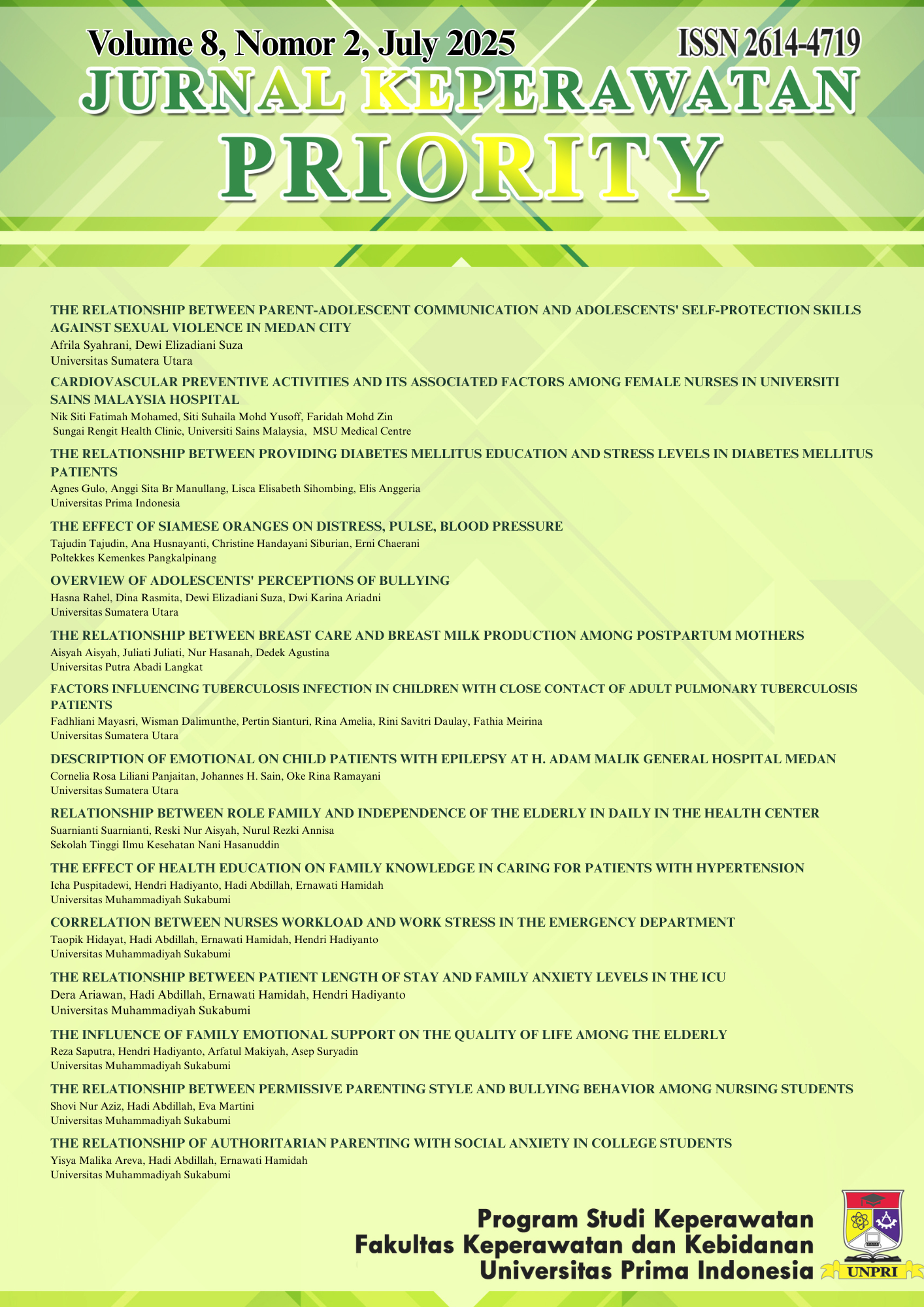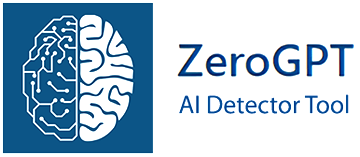The Relationship Between Providing Diabetes Mellitus Education and Stress Levels in Diabetes Mellitus Patients
DOI:
https://doi.org/10.34012/jukep.v8i2.7479Keywords:
diabetes mellitus, education, stress levelAbstract
Diabetes is a metabolically complex disorder characterized by chronic hyperglycemia caused by abnormalities in insulin production and function. Diabetes is classified into type 1 and type 2. Type 1 diabetes is triggered by an autoimmune process that damages pancreatic beta cells, whereas type 2 diabetes is characterized by insulin resistance. The purpose of this study was to identify the relationship between diabetes mellitus education and stress levels among patients with diabetes mellitus at UPT Puskesmas Sei Agul. This research employed a correlational design with a descriptive approach, using a cross-sectional method to examine the relationship between two variables: the independent variable and the dependent variable. The sampling technique used was total sampling, involving 50 respondents. The results showed a significant relationship between the provision of education and stress levels among respondents. Specifically, 10.0% of respondents with poor education experienced severe stress, while in the good education category, 78.0% experienced mild stress and 12.0% experienced moderate stress, with no cases of severe stress. Statistical analysis revealed a p-value of 0.001, indicating that the level of education significantly influences respondents’ stress levels. In conclusion, there is a significant relationship between education and stress levels, suggesting that effective counseling and education play an important role in reducing stress among patients.
Downloads
Published
How to Cite
Issue
Section
License
Copyright (c) 2025 Agnes Gulo, Anggi Sita Br Manullang, Lisca Elisabeth Sihombing, Elis Anggeria

This work is licensed under a Creative Commons Attribution 4.0 International License.
Authors who publish their manuscripts through the Journal of Keperawatan Priority agree to the following:
- Copyright to the manuscripts of scientific papers in this Journal is held by the author.
- The author surrenders the rights when first publishing the manuscript of his scientific work and simultaneously the author grants permission / license by referring to the Creative Commons Attribution 4.0 International License to other parties to distribute his scientific work while still giving credit to the author and the Journal of Journal Keperawatan Priority as the first publication medium for the work.
- Matters relating to the non-exclusivity of the distribution of the Journal that publishes the author's scientific work can be agreed separately (for example: requests to place the work in the library of an institution or publish it as a book) with the author as one of the parties to the agreement and with credit to sJournal ofJournal Keperawatan Priority as the first publication medium for the work in question.
- Authors can and are expected to publish their work online (e.g. in a Repository or on their Organization's/Institution's website) before and during the manuscript submission process, as such efforts can increase citation exchange earlier and with a wider scope.


















